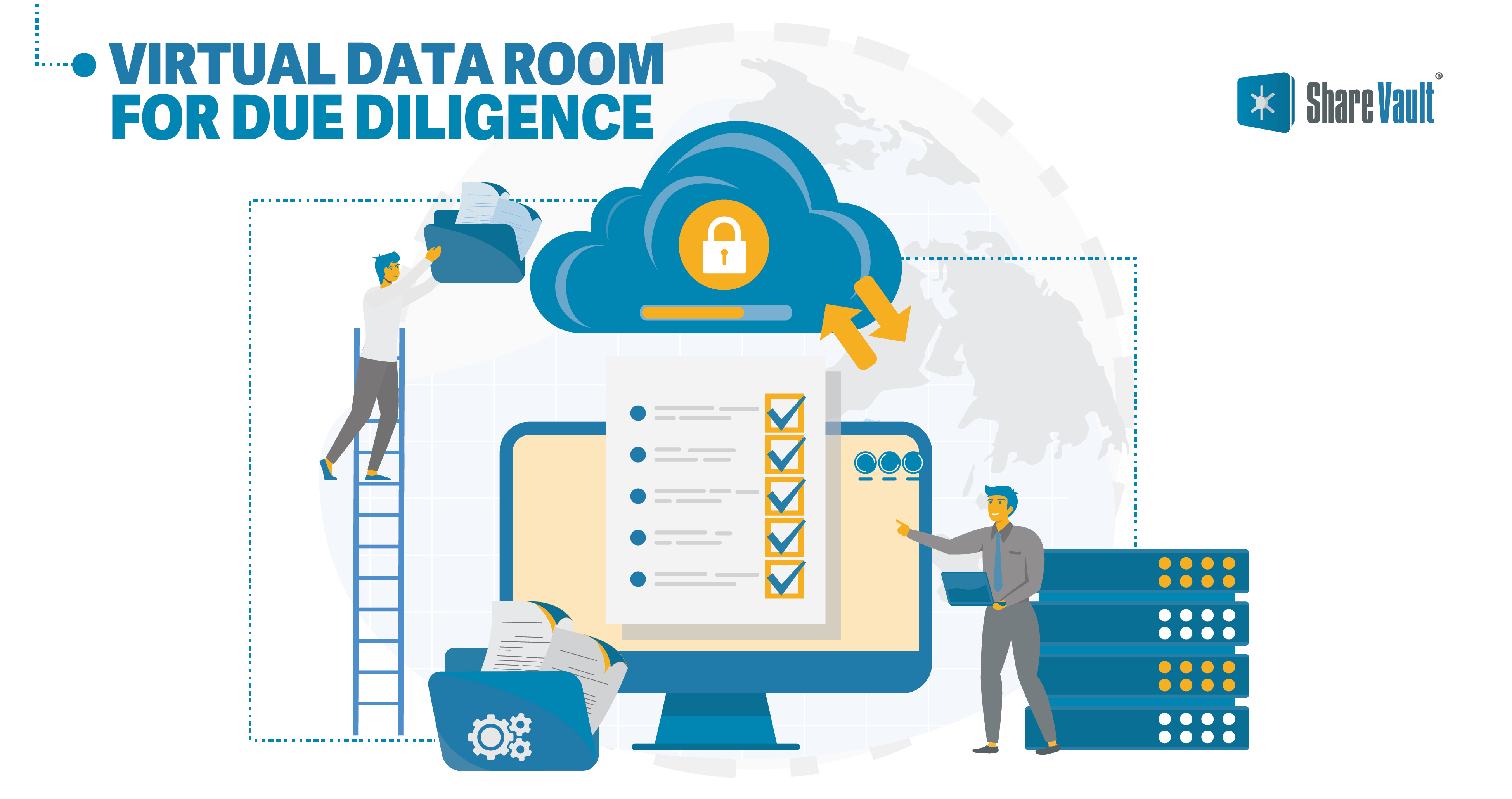When conducting due diligence on a target company, your goal is to thoroughly evaluate its affairs in order to make an informed decision as to whether to proceed with an acquisition. After completing a preliminary overview investigation of the company and signing a letter of intent or term sheet, it's time to dig deep into corporate data.
This includes reviewing finances, sales figures, customer data, ownership of assets, personnel records, and vendor records. Keep in mind that some proprietary information may be staged for later in the due diligence process when it is warranted by the seriousness of your intent.
Use A Virtual Data Room
The best way to efficiently evaluate due diligence materials is to view them in an organized virtual data room that is not only easy to navigate, but also completely secure. If due diligence experts can access a central, online document repository that is indexed, fully searchable, and available around the clock, the transaction is more comprehensive and transparent, and it greatly expedites the due diligence process.

As a buyer, this type of secure access to corporate data streamlines due diligence and reduces the time it takes to make an informed decision. If the target company is not using a virtual data room, suggest (or require) that they do and provide a due diligence checklist to guide them in populating it. ShareVault provides efficient and secure data room software that allows businesses to access and share all documents relating to the due diligence process.
Review The Company's Business Structure And Practices
The company's organizational documents should include articles of incorporation, bylaws, names of board members, board meeting minutes, names of shareholders, a list of all the states and countries where the company does business, and an organization chart.

It's also important to review corporate records for partnership agreements, vendor and supplier relationships, and agreements to purchase securities. The data room should include licenses, permits, and letters of consent, as well as articles and press releases about the company.
Review Corporate Financials
Your accounting expert will want to see annual reports, tax filings, profit and loss statements, the general ledger, and accounts payable statements. Accounting will also be interested in a schedule of accounts receivable by category for the latest annual and interim periods and comparable periods, as well as the company's credit policy and collection procedures.
When performing a more in-depth analysis, your accounting team will also review the company's latest annual and interim period aging analysis and trends allowing for uncollectible accounts and past write-offs.

Inventory And Review Assets
Can the target company provide evidence that they own their intellectual property? It's important to not just verify the ownership, status, and control of the assets, but also to determine both the strength and economic value of those assets and the potential liability for infringement.
#1. Your due diligence plan should include reviewing each asset to verify that all registrations to which the asset is entitled have either been obtained or applied for and are up to date with the appropriate filing office. Check that there is a clear, documented chain of title from the author or previous owner and that assignment documents are recorded in the public records. You should also check for any encumbrances, such as security interests or liens, and any contracts that grant others the right to use or control IP assets.
#2. Never rely solely on the seller's disclosure of intellectual property assets. It is good practice to perform separate searches by "owner" at the same time as you pull and review the records for the IP assets disclosed by the seller. This process may uncover relevant patent, trademark, or copyright applications or registrations that, for whatever reason, were not previously disclosed.
Your due diligence team should carefully examine any trade secret policies and procedures, as well as all agreements to recognize and maintain confidentiality. The team should also investigate the real physical manner the company uses to handle materials containing trade secrets. Make sure the target company has taken adequate precautions to restrict or prohibit the disclosure and use of trade secrets.
#3. Perform a complete inventory and assessment of physical assets. These assets might include real estate, manufacturing equipment, office equipment and supplies, inventory, and raw materials.
Investigate Outstanding Liabilities
One of the key components of the due diligence process is identifying cases of unresolved litigation. Are there any lawsuits or threats of litigation that could surface after the deal has closed? These exposures can be associated with current or past employees, past or present customers, vendors, intellectual property issues, and can even be related to company practices that are no longer in use.
Never assume that it's enough to only ask about outstanding litigation issues. It's not uncommon for a thorough due diligence review to reveal litigation exposure of which the owners of the selling company were not even aware. Unresolved disputes, exposed late in the due diligence process, are not only more challenging and costly to deal with but can delay and potentially kill deals.
Get Started With Sharevault's Data Room Software
Utilizing ShareVault's secure data room software can help as you work through the process of conducting successful due diligence. For more information on how a virtual data room can expedite buy-side due diligence, contact our team or request a demo below.
